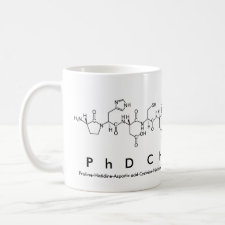
Authors: Qiu HT, Zheng NN, Fang QH, Lin MY, Zhou SY
Article Title: Synthesis and application of a surface molecularly imprinted adsorbent for di(2-ethylhexyl)phthalate base on graphite oxide.
Publication date: 2019
Journal: Chinese Journal of Chromatography
Volume: 37
Issue: (7)
Page numbers: 692-700.
DOI: 10.3724/SP.J.1123.2019.01049
Alternative URL: http://pub.chinasciencejournal.com/ChineseJournalofChromatography/45895.jhtml
Abstract: A molecularly imprinted polymer (MIP) base on the surface of graphite oxide (GO) has been developed for the selective recognition of di(2-ethylhexyl)phthalate (DEHP), and applied for the extraction of DEHP in a milk bag sample, with detection by high-performance liquid chromatography. The surface-molecularly imprinted material was prepared by precipitation polymerization in N,N-dimethylformamide (DMF) solvent, using GO as the supporting material, DEHP as the template molecule, and methacrylic acid (MAA) as the functional monomer; the synthesis conditions were also optimized. The obtained GO-MAA-MIP was characterized by Fourier transform infrared (FTIR) spectroscopy and transmission electron microscopy (TEM). The adsorption properties of the product were evaluated by adsorption experiments, including adsorption isotherms, kinetics, selectivity, saturated adsorption capacity, adsorption equilibrium time, and reusability. Under optimized conditions, DEHP was effectively extracted in the real sample (milk bag) and detected by HPLC. Linearity was obtained with a correlation coefficient (R2) of 0.9979 in a linear range of 0.5-50 mg/L. The limits of detection and quantitation were 0.03 mg/L and 0.1 mg/L, respectively. The average recoveries of the spiked samples at three concentration levels of DEHP ranged from 81.6% to 92.4% with relative standard deviations (RSDs) less than 7%. The results indicated that the proposed GO-MAA-MIP-SPE (solid phase extraction) protocol with HPLC-UV detection could be applied for the selective analysis of DEHP in real samples.
Template and target information: di(2-ethylhexyl)phthalate, DEHP
Author keywords: surface molecularly imprinted polymer (SMIPs), graphite oxide (GO), solid phase extraction (SPE), di(2-ethylhexyl)phthalate (DEHP), milk plastic bags



Join the Society for Molecular Imprinting

New items RSS feed
Sign-up for e-mail updates:
Choose between receiving an occasional newsletter or more frequent e-mail alerts.
Click here to go to the sign-up page.
Is your name elemental or peptidic? Enter your name and find out by clicking either of the buttons below!
Other products you may like:
 MIPdatabase
MIPdatabase









